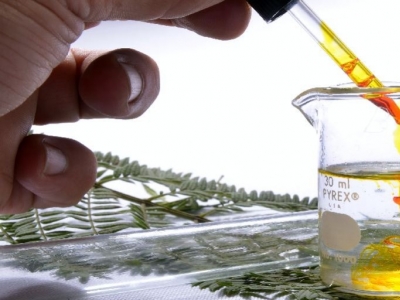As we have already mentioned, there are more than 100 cannabinoids, among which THC and CBD stand out. These are two of the most consumed and known, however there are others with positive effects on our health. Today we will talk about CBG or cannabigerol.
What is CBG and how is it formed?
CBG or cannabigerol is one of the more than 100 cannabinoids that exist, and that mostly arise from CBGA. From this first compound, combined with enzymes, the subtypes CBDA, THCA, CBCA and CBG are created, which after decarboxylation (or heating) form the final forms CBD, THC, CBC and CBG.
In the Cannabis plant, the total CBG content is around 1% or less, although, taking into account its possible health benefits, experimental cultivation is being planned to expand its concentration, and that its extraction easier.
CBG and the Endocannabinoid System
Our body has the Endocannabinoid System (SEC), a nervous system that participates in functions such as mood control, sensitivity to pain, appetite or sleep. Cannabinoids have an affinity for some of the receptors in this system, producing various effects.
CBG has an affinity for the CB2 receptors of the SEC, and binds to them, for example, at receptors found in the nervous system, digestive system or connective tissue.
Despite having the same origin as THC or other cannabinoids, CBG, like CBN or CBD, does not have psychotropic effects.
The properties and beneficial effects of CBG on health
Although the isolation of CBG occurred at the same time as that of THC, in 1964, by Raphael Mechoulam, studies regarding CBG are still in early stages.
However, despite the still incipient study of this variety of cannabinoid, beneficial health effects have already been seen. We go on to detail some of them:
It reduces intraocular pressure and can be beneficial in the fight against glaucoma.
Fight inflammation. It is considered a possible solution to Inflammatory Bowel Disease (IBD) and has been shown to reduce colitis.
It can, like THC, stimulate the appetite.It can be helpful in the treatment of neurodegenerative diseases such as Huntington's disease, as it has neuroprotective properties.
It can improve muscle contractures.
Like other cannabinoids, it has anticancer properties. So far, CBG has been shown to help slow the progression of colon cancer.
It has antibacterial properties, being effective in the care of skin infections.
It can improve the condition of people with overactive bladder.
In small doses, or medicinal, like other cannabinoids, CBG has no side effects.
Regarding its formats, although it is still under investigation, it is expected that this cannabinoid will be found in multiple formats, such as oils or ointments.
If you want to know more about CBG, and other cannabinoids, and their properties for health and well-being, we recommend you follow the articles on our blog, and we invite you to discover our wide range of products with cannabinoids.






































